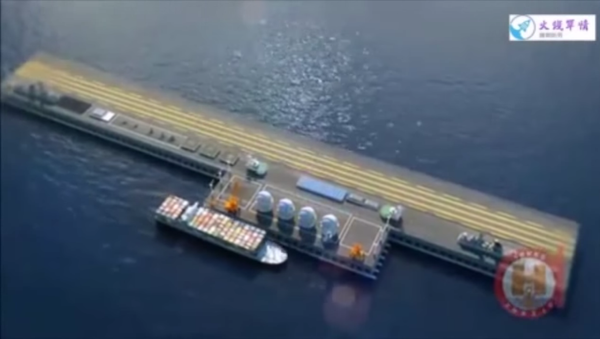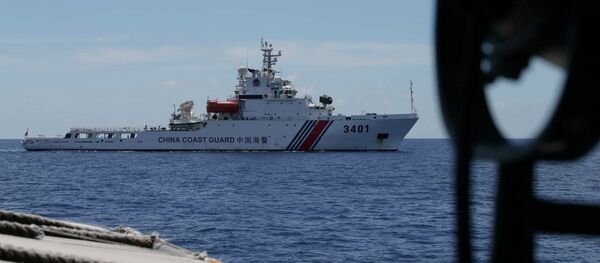"So far these are only in the design and research phase," Feng Jun, chairman of Hainan Offshore Industry, a company developing the technology, was quoted as saying by the Financial Times.
To date, the technology has been used primarily by companies drilling offshore for oil and gas.
While the Chinese companies are stressing the civilian potential of the platforms – shopping centers and tourist destinations – executives have also acknowledged that the floating structures could one day be used by China's Navy, the FT reported.
The announcement comes at a time when Beijing is building man-made islands in the South China Sea, where China and other nations in the region have overlapping territorial claims. There is speculation that Beijing will use the islands to house military facilities.
Hainan Offshore's website notes the disputed land claims in the region:
"Under the increasingly complicated South China Sea situation, Hainan Offshore Industry adheres to the principle 'when the sovereignty of the state is challenged, time and tide wait for no man.'"
Experts say deploying very large floating structures (VLFS) in the South China Sea could escalate already tense relations in the region.
"Planting one of these in the middle of the South China Sea would be a terribly provocative act," Richard Bitzinger, an authority on maritime security, told the FT.
China's military appears to have shown interest in VLFS projects at forums and conferences for the military and defense industries. But a spokesman for China's defense ministry this week said he is not aware of plans for procuring or using such structures, the FT reported.
Jidong Development, a state-owned company, is contributing most of the research funding to the joint project, local media reported. This first VLFS, being built near Beijing, would be used as a "deep sea comprehensive security base."
Still, experts say the structures are more likely to be large oil drilling rigs.
Bitzinger, the maritime authority, doubts their military value in a conflict. They would be "expensive and hard to move around," he told the FT, adding that China would be better off with more aircraft carriers.



